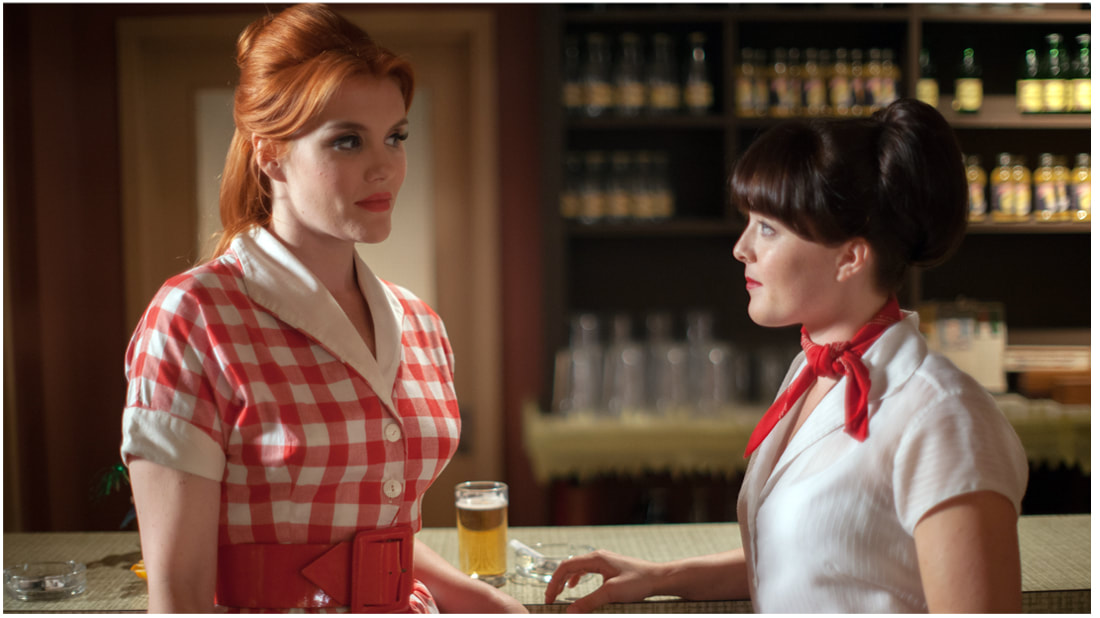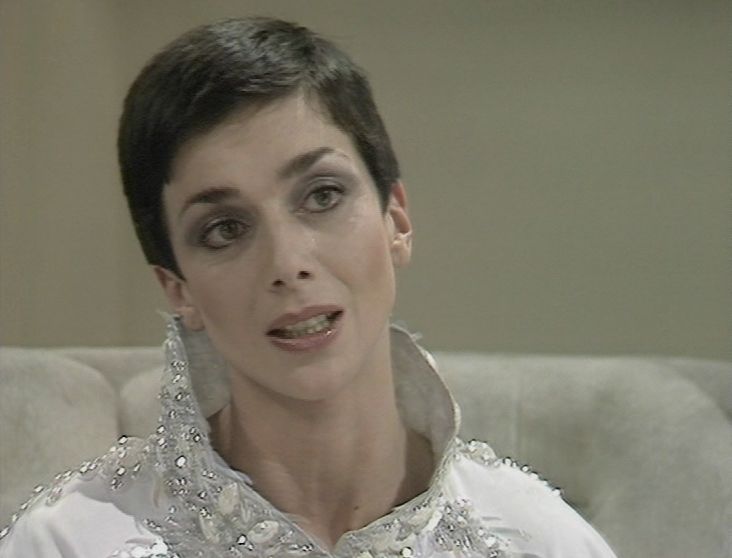Deleted member 82792
I just watched Indiana Jones last night, so I was wondering if something similar could exist but with a German archeologist instead?
I just watched Indiana Jones last night, so I was wondering if something similar could exist but with a German archeologist instead?
What would Red Dwarf or Blackadder be like? Or Yes Minister/Prime Minister?
Emerald Fennel as Nurse Patience ‘Patsy’ Mount and Kate Lamb as Nurse Delia Busby in British Broadcasting Union show Call the Midwife. Centred around midwives of the new Nursing and Midwifery Union working in London’s East End between the mid-to-late 1950s and early 1960s, the show is known for its nostalgic charm yet also praised for addressing real historical issues: the increasing liberalisation of Union society following the end of pre-Weltkrieg rationing and fears of German invasion; continued medical innovations and the ongoing growth of medical unions and other social spending; the continued difficulties suffered by young people descended from aristocratic families - as seen in Patsy’s character -; the sweeping changes in the previously-deprived East End; and the obsolescence of religious organisations that had previously handled healthcare in poor communities.

Shaun Evans as Detective Sergeant Endeavour Morse and Roger Allam as Detective Inspector Fred Thursday, People’s National Police, in BBU crime drama Endeavour. A prequel to the popular Inspector Morse show that ran between 1989 and the early 2000s, Endeavour has been praised for a period-accurate portrayal of the city of Oxford during the 1960s and the capturing of the existential doubts faced by many traditional universities during the period, as the increased numbers of new technical colleges and a drop in student intake led many to question if they could continue operating. While the modern viewer knows that they did, and would indeed go on to thrive, at the time the fear was a very real one. Critics have also praised the show for the strong chemistry between Morse, a young man of the generation that had grown up under a secure and democratic Syndicalist government, and the more old-school Thursday who had experience of a time when both Syndicalism’s survival and the democratic nature of the Union were both threatened.

Art from the comic Invasion, a story appearing in the popular British science-fiction comic Future Echoes between 1977 and 1978. Set in the then-future of 1999, it told the grim story of an attempted invasion of the Union of Britain by the fictional Volgan Empire (an obvious expy for Russia) and of guerrilla resistance to this invasion led by the character Bill Savage, a former lorry driver and elected Chairman of a major haulage union. While the story was a decidedly grim one - especially when considered against the more optimistic (yet still realistic and often gritty) science-fiction and fantasy stories usually found in Future Echoes - it was popular during its run, and ended on a largely hopeful note.

William Hartnell as the first incarnation of the character of The Time Master, a time-travelling alien who travels to different worlds and eras accompanied by human companions. A major BBU show, Time Master began with its first serial ‘An Unearthly Child’ in 1963, and would run until 1967 before ending prior to a long-running revival in 1981. While early scripts have been somewhat derided for their ‘moralising’ approach - the past is frequently judged by the standards of modern Syndicalist values, and imperialist/capitalist societies and aliens are frequently shown as obvious antagonists - it was an advanced show for its day and would lay the groundwork for more hard-hitting science-fiction shows, including the much-beloved cultural institution Pilots of the Future.
Biggest issue with Indiana Jones is that all the places he goes in the films are all in the midst of wars in the KRTL. You could have him be a German archaeologist and replace the Nazis with Syndies or Russian Fascists but it wouldn't make sense for Indy to go to the middle east (twice) during the Cairo Pact War, and to go to shanghai while its being invaded by the Japanese




What would Red Dwarf or Blackadder be like? Or Yes Minister/Prime Minister?
I mean it honestly does not that have to be that different, Corruption and Political machines in Unions would be a defenite problem, The diffrence is that while my TL's Union stuck its head in the sand and used societal and govermental pressure to silence dissent, your union probably listens and takes measures to reform before the rot it goes too far. Plus not getting involved in too many foreign warsHmmm...
Might need to see what Yes, Minister would look like in my TL at some point...
eh screw it, ill just post the passage:one question guys do you think it be inappropiate to put a piece from a part of pure history book in this thread or should I just keep to pop culture. I wonder because I want to write something more concrete describing the fall of Syndiclaism and its reasons which I think would belong in a book of pure history

MASSIVE SNIP
Pearce’s acting would gain great praise, as would Sylvester McCoy’s character of Doctor Henry Monk, ostensibly the ship’s physician and an avid lover of the natural world...but also a talented spymaster.
Reminder = Three images per DAY limit please.
Thanks.